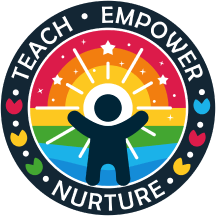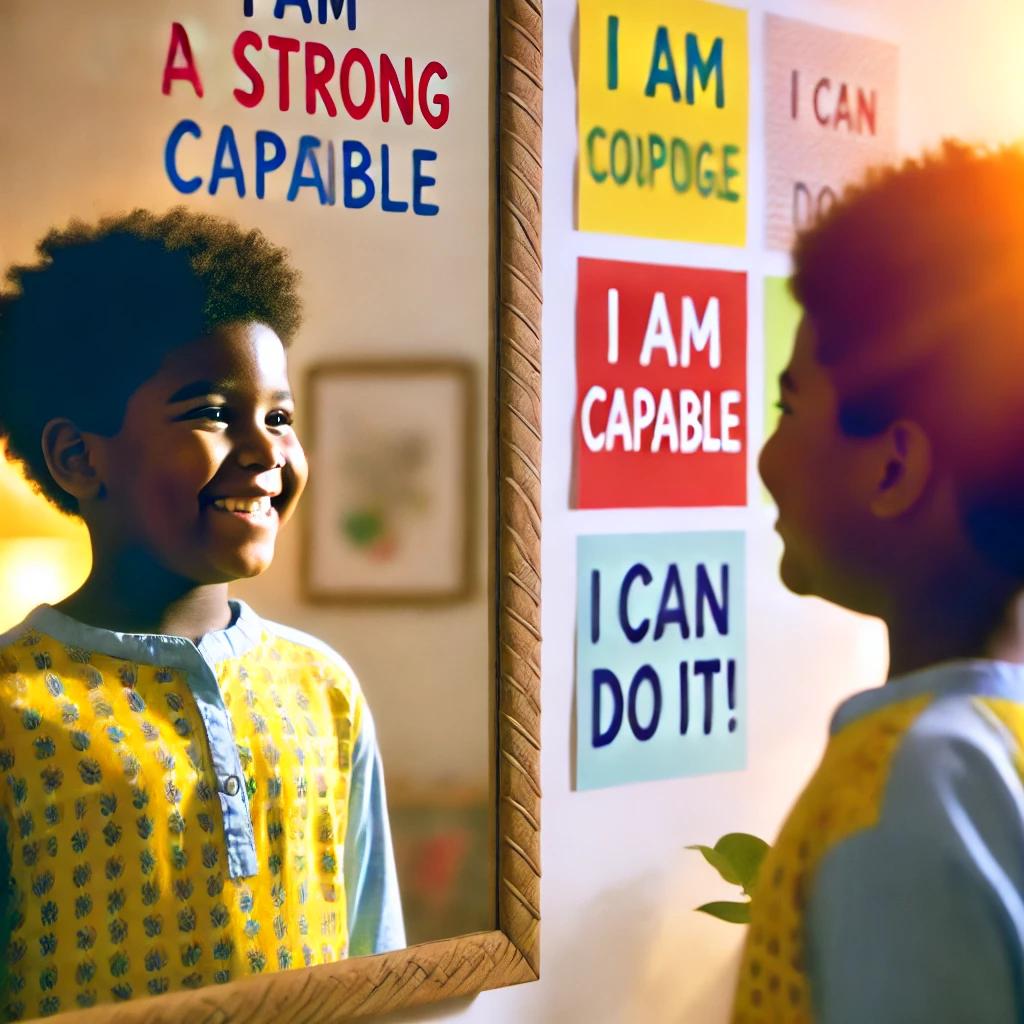The Power of Mirror Work: Building Confidence and Self-Esteem in Children
In today’s fast-paced world, helping children develop a strong sense of self-confidence and self-esteem is more important than ever. With social pressures, academic challenges, and the general uncertainties that life brings, children need tools that will help them navigate their emotions and build resilience. One of the most effective and simple practices to support children in this journey is mirror work.
What is Mirror Work?
Mirror work involves standing in front of a mirror, looking into one’s own eyes, and repeating positive affirmations. It’s a self-reflective exercise aimed at nurturing self-love and reinforcing positive beliefs about oneself. Originally popularized by self-help pioneer Louise Hay, mirror work has been shown to improve self-awareness, boost confidence, and help individuals connect more deeply with themselves.
Why is Mirror Work Effective for Children?
Children are especially impressionable during their early years, absorbing the world around them and forming beliefs about themselves based on their interactions with others. Mirror work is a gentle and empowering way to guide them toward forming a positive self-image, one that is not dependent on external validation.
Here’s how mirror work can benefit children:
1. Boosts Confidence
By repeating affirmations like “I am strong,” “I am smart,” or “I am loved,” children begin to internalize these messages. Over time, this helps them feel more confident in their abilities, decisions, and unique qualities. Rather than seeking approval from peers or adults, they start to develop an inner sense of worth and capability.
2. Builds Self-Esteem
Children often compare themselves to others or feel inadequate due to perceived flaws or mistakes. Mirror work encourages them to accept and love themselves as they are. This self-acceptance strengthens their self-esteem, making them feel more comfortable in their own skin and better equipped to handle criticism or challenges.
3. Enhances Emotional Resilience
Mirror work helps children develop emotional resilience by reinforcing the idea that they are enough, just as they are. When children believe in their worth, they are less likely to be shaken by setbacks or failures. They learn to treat themselves with kindness and compassion, which is key to bouncing back from challenges.
4. Promotes Positive Self-Talk
The way children speak to themselves plays a crucial role in shaping their mindset. Through mirror work, they learn to replace negative self-talk with positive affirmations. Instead of focusing on their shortcomings, they celebrate their strengths and abilities, fostering a more optimistic outlook on life.
How to Introduce Mirror Work to Children
Introducing mirror work to children can be a fun and uplifting experience. Here’s how parents, educators, or caregivers can get started:
1. Make it Simple
Start by asking the child to stand in front of a mirror, make eye contact with themselves, and smile. Encourage them to say a few simple affirmations such as “I am brave,” “I am kind,” or “I can do anything I set my mind to.”
2. Keep it Positive
Ensure that the affirmations are always positive and age-appropriate. Avoid phrases that are overly complex or abstract. The goal is to make the child feel empowered and proud of who they are.
3. Create a Routine
Like any skill, mirror work becomes more effective with regular practice. Encourage children to do it daily, perhaps as part of their morning or bedtime routine. It doesn’t have to take long—just a few minutes a day can make a big difference.
4. Make it Fun
Incorporate creativity into mirror work by allowing the child to decorate their mirror with stickers or write their affirmations on sticky notes to place around the frame. This can make the practice more engaging and personalized.
5. Lead by Example
Children often model the behavior of the adults around them. Show them how to do mirror work by doing it yourself. Share how it makes you feel more confident and resilient, and let them see the power of self-love in action.
Real-Life Stories: How Mirror Work Transformed Children’s Lives
Many parents and educators have shared how mirror work has made a positive impact on children. For example, Sarah, a mother of an 8-year-old boy, noticed that her son was becoming increasingly self-critical and withdrawn. After introducing mirror work, she saw a remarkable change. Her son became more self-assured, started participating more in class, and even began standing up for himself when faced with challenges.
Similarly, a teacher introduced mirror work to a group of students who struggled with low self-esteem. By the end of the school year, many of the students reported feeling more confident, and their performance in both social and academic areas improved. They learned to focus on their strengths rather than their shortcomings.
Final Thoughts
In a world that can sometimes feel overwhelming, helping children develop confidence and self-esteem is one of the greatest gifts we can give them. Mirror work is a simple yet transformative practice that encourages children to love and believe in themselves. By looking in the mirror and repeating positive affirmations, they learn to see their true potential and embrace their unique qualities.
It’s never too early to teach children that they are enough, just as they are, and that self-love is the foundation of a happy and fulfilled life. With the power of mirror work, children can grow into confident, resilient individuals who are ready to take on the world.
So, why not try it today? Let your child look in the mirror and say, “I am amazing!” You might just be amazed at the results.



